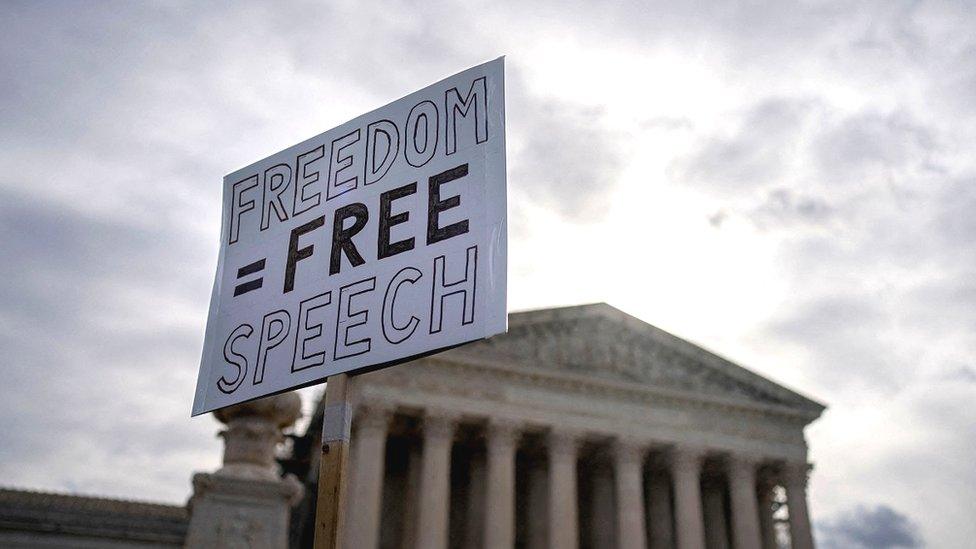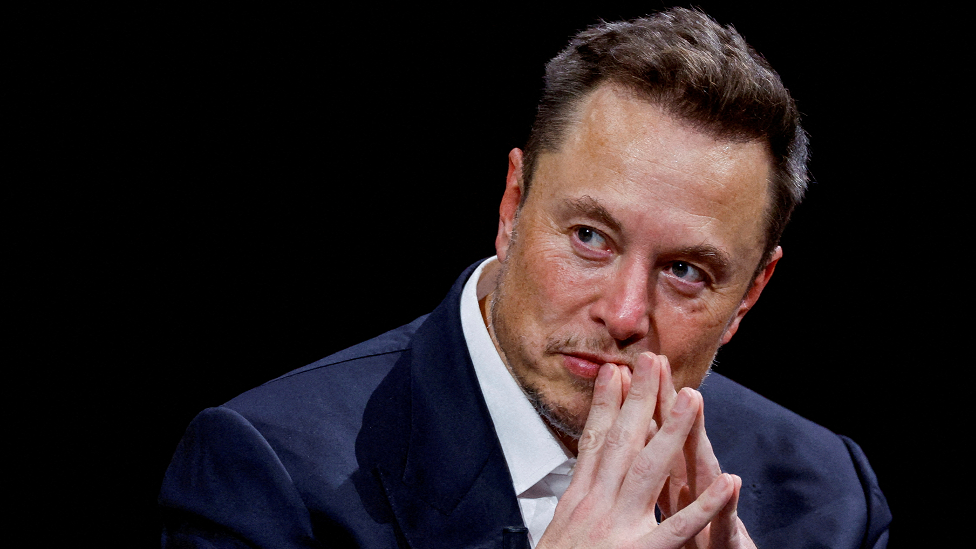Supreme Court wary of limiting government contact with social media platforms
- Published

The Supreme Court has heard arguments in a case that will define how far the US government can go in attempting to tackle disinformation online.
Louisiana and Missouri brought the case, arguing that the government's contact with social media platforms should be limited.
But the court's nine justices appeared unconvinced during arguments on Monday.
The case is seen as a test of how much the government can pressure social media companies to remove content.
It began after President Joe Biden's administration pushed platforms to remove posts about the Covid pandemic and the 2020 election which it said were false.
Louisiana and Missouri were joined in the lawsuit by several plaintiffs who said their free speech rights had been violated and the Biden administration had sought to stifle conservative views.
They include Jim Hoft, the owner of Gateway Pundit, a right-wing website that has been accused of publishing misinformation, and Jill Hines, co-director of Health Freedom Louisiana, a group that argues against vaccines and laws which mandate them.
On Monday, some justices expressed a reluctance to support a lower court's ruling that would severely limit government interactions with social media companies. That ruling is on pause while the Supreme Court considers the case.
Several justices said they were concerned ordinary interactions between officials and the major platforms could be impacted.
"Some might say that the government actually has a duty to take steps to protect the citizens of this country, and you seem to be suggesting that that duty cannot manifest itself in the government encouraging or even pressuring platforms to take down harmful information," Justice Ketanji Brown Jackson told Benjamin Aguinaga, the Louisiana solicitor general.
Mr Aguinaga argued that emails to social media executives from White House officials constituted illegal pressure and amounted to censorship.
In the messages, the Biden administration flagged popular posts on the biggest social media platforms that promoted - among other things - misinformation about Covid vaccines and false claims of widespread voter fraud during the 2020 presidential election.
Some of the emails were sent to senior social media executives such as Meta's president of global affairs and former UK Deputy Prime Minister Nick Clegg.
Lower court judges have found there is evidence that the government overstepped its authority in its contacts with the social media companies.
In an initial ruling in July 2023, a federal judge in Louisiana wrote: "If the allegations made by plaintiffs are true, the present case arguably involves the most massive attack against free speech in United States history."
However the Supreme Court justices appeared wary during Monday's arguments. Mr Aguinaga faced pointed questions from the three liberal members of the court along with several of the more conservative justices.
The justices questioned whether the Biden administration's messages led directly to the social media companies taking action and limiting speech, and whether the plaintiffs - who are still active on social media - could actually show that their free speech rights were violated.
Justice Jackson posed a hypothetical situation about whether the government would be prohibited from contacting technology companies about a potentially deadly challenge going viral on social media among teenagers.
"I think [the government] absolutely can call and say 'this is a problem,'" Mr Aguinaga said, but he added that officials would cross the line if they then put pressure on companies to take down the posts.
Brian Fletcher, defending the Biden administration, argued that if the Supreme Court sides with the two states and other plaintiffs, it would hamper efforts to stem misinformation and promote public health, even in emergency situations.
"The government is entitled to speak for itself," Mr Fletcher said.
The Supreme Court decision is expected in June.
- Published13 October 2023
